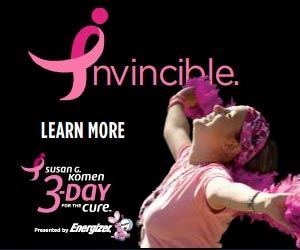Contacts: Martha Plotkin: (240) 482-8579, mplotkin@csg.orgLeah Kane: (240) 482-8585, lkane@csg.org May 26, 2010
For Immediate Release Federal Grantees Gather to Advance
Public Safety Strategies Second Chance Act Recipients and Other Experts Focus on Improving Prisoner Reentry Washington, DC—Democrat and Republican congressional leaders, reentry experts and representatives of programs receiving federal funding through the Second Chance Act (Public Law 110-199) came together today to share strategies that increase success rates for people released from prisons, jails and juvenile correctional facilities. Reps. Danny Davis (D-IL) and Bobby Scott (D-VA) and Senator Sam Brownback (R-KS) were among the Second Chance Act sponsors who addressed the more than 300 attendees and observers. With support from the Bureau of Justice Assistance, U.S. Department of Justice, this first national conference for Second Chance Act grantees was convened to help front-line professionals learn from experts and peers about approaches in housing, employment, mental health and substance abuse treatment, community supervision and other areas that help support a person's transition from a correctional facility to the community. The Bureau of Justice Statistics reported that in 2008, the most recent available statistics, more than 683,000 people were released from state prisons alone. Prior studies estimate that half would be reincarcerated within three years and that the fastest growing category of prison admissions is people already under some form of community supervision. The U.S. Department of Justice continues to make reentry a priority, as evidenced by the participation of Mary Lou Leary, principal deputy assistant attorney general for the Office of Justice Programs, and Jim Burch, acting director for the Bureau of Justice Assistance. "The work you do here today—and in the months and years to come—will have tremendous visibility throughout the highest levels of the Department of Justice—and the Obama Administration." said Leary in her comments to the experts who are leading the advisory committees on key topics for the National Reentry Resource Center. Leary continued, "Our ability to influence change on the state and local levels depends on the expertise of our partners in the field, and there's no group of people more qualified to guide us than the group assembled in this room." "The Justice Center's National Reentry Resource Center staff and partners hope that this conference will allow reentry grant recipients the opportunity to learn more about the kinds of technical assistance available to them, to share promising strategies with their peers, and learn from subject experts how we can break the cycle of reincarceration and improve outcomes for individuals returning to our communities and their families," said Council of State Governments Justice Center Co-chair and Kansas State Representative Pat Colloton. The conference was designed to build the knowledge base of what works to reduce crime. Many sessions focused on ensuring grantees make the most of the federal investment in their programs by highlighting accountability issues and key practices such as assessing an individual's risk for committing future crimes, designing data-driven programs and effectively allocating the limited resources available for people returning from prisons and jails. Special attention was dedicated to sharing strategies on meeting the unique needs of youth returning to schools and families following a period of detention in a secure facility in an effort to implement programs that interrupt the costly cycle of crime and incarceration. The conference agenda, inclduing the full list of presenters, is available at http://www.nationalreentryresourcecenter.org/documents/0000/0555/Conference_Program.pdf .
The National Reentry Resource Center (NRRC) provides education, training, and technical assistance to states, tribes, territories, local governments, service providers, nonprofit organizations, and corrections institutions working on prisoner reentry. The NRRC is coordinated by the Council of State Governments (CSG) Justice Center, with support from the Bureau of Justice Assistance, U.S. Department of Justice (www.ojp.usdoj.gov/BJA). For more information, visit http://www.nationalreentryresourcecenter.org. For more about the CSG Justice Center, see http://www.justicecenter.csg.org. The NRRC was established by the Second Chance Act (Public Law 110-199), which was signed into law on April 9, 2008. The Act was designed to improve outcomes for people returning to communities from prisons and jails. This first-of-its-kind legislation authorizes federal grants to government agencies and nonprofit organizations to provide employment assistance, substance abuse treatment, housing, family programming, mentoring, victims support, and other services that can help reduce recidivism. For more information about the Act, see http://www.nationalreentryresourcecenter.org/about/second-chance-act. The NRRC's work also is directed by the Justice Center's key project partners: the Urban Institute; Association of State Correctional Administrators; American Probation and Parole Association; and Shay Bilchik, research professor/center director, Georgetown University Public Policy Institute. Additional guidance is provided by advisory committees that include representatives of nearly 100 leading nonprofit organizations and service providers in the reentry field.
|













